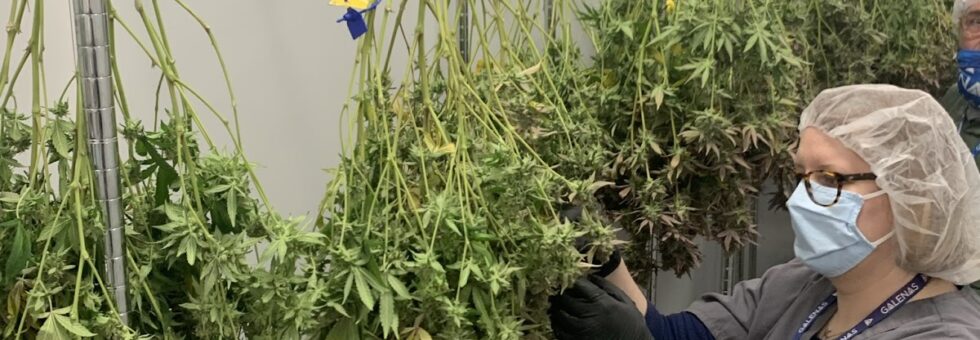Cannabis laws are changing at an unprecedented rate in the U.S. and worldwide. In our country, more than half of the states have legalized cannabis for medical use and nearly one-third of the U.S. has legalized adult use. The economic impact of this rapidly growing industry is staggering. In fact, it’s entirely possible that legalization may be the best solution to remedy the crippled post-Covid economy.
Last year, Covid-19 brought many changes to our daily lives. Many people lost their jobs due to stay-at-home orders and business closures. Unemployment was at a record high. Despite cannabis remaining illegal on the federal level, all but one legalized state considered cannabis to be essential business during the shut-down. A cursory look at any available statistic makes it clear why legalization is such a reasonable solution to an economy in decline.
Employment Outlook for the Cannabis Industry
The U.S. cannabis industry currently employs more than a quarter million full-time jobs and it’s estimated that legalization nationwide could bring as many as 1.6 million new jobs. There are more people employed in legal cannabis than EMT’s, dentists or computer programmers and the field is constantly growing. It’s also notable that the jobs created are good jobs in which the employee’s wages are 11% higher than the U.S. median salary. In addition to the creation of available jobs in the industry, federal legalization would allow for investment opportunities in our country, similar to large Canadian companies like Aurora Cannabis and Canopy Growth. Canada’s cannabis industry brings $8.16 billion to their country’s economy.
It’s been reported that legalization in the United States could bring $128.8 billion in tax revenue. Changing our cannabis laws on a national level would provide revenue and job opportunities on a scale that’s been unprecedented in the history of our country. We saw the effect that the repeal of prohibition had on the Great Depression in providing much-needed funding for FDR’s New Deal.
The Economic and Social Harms of Cannabis Prohibition
Prohibition of alcohol, like cannabis, had been a failure from the beginning. Those that chose to partake did so regardless of the laws and penalties associated with their use and the only substantial outcome came from the need to drive the alcohol industry out of legitimacy and underground, leading to organized crime, gang activity and smuggling. At one point, courts were so inundated with minor alcohol-related cases that it led to the development of the plea-bargain. Now once again, we see how prohibition has led to an overwhelmed criminal justice system that unfairly and unequally targets minority groups and spends an extraordinary amount of money and resources on enforcing these unjust laws.
The U.S. has, by far, the largest incarceration rate in the world. The largest contributor to this rate is the War on Drugs. Many of those arrested are convicted of nonviolent marijuana offenses. Public opinion regarding marijuana has shifted dramatically and there is widespread support for sensible decriminalization. Despite that, the U.S. Dept. of Justice reports that over $1 billion a year of taxpayer money is spent on incarceration costs and 660,000 people a year are still arrested for breaking marijuana laws. It’s estimated that stopping marijuana arrests would save up to $10 billion dollars a year. The extravagant costs of enforcement simply doesn’t add up when we consider that, at this point, millions of dollars are still spent on illegal cultivation detection by plane, with no charges filed, and even in federal cases, only 3% are taken to trial.
In addition to the money saved by enforcing laws against the very plant that is now considered Maine’s most valuable crop, the money brought in through additional tax revenue is astounding. Federal legalization could bring $160 billion in additional tax revenue over the next few years which would be a huge boost to severely depleted budgets. As of May 2021, states reported collecting a combined total of $7.9 billion in tax revenue from legal, adult-use sales, and that’s not counting the revenue accrued by local communities. Even real estate is affected with home values rising an average of $6,000 immediately following legalization and increasing by 7.7% when located within half a mile of a dispensary.
Economic Benefits of Cannabis Legalization
The benefits of cannabis legalization are clearly documented and widely understood in the business world and by finance savvy individuals but are our legislators seeing the light? It appears that they are. This week, bills have been announced both in Ohio and federally, to legalize use for adults.
As the public gains more knowledge about the discriminatory nature of cannabis prohibition and its impact on society, we see the additional repercussions that have occurred through enforcement and how these practices have negatively impacted lives and whole communities. There is an opportunity to right these historic wrongs and, in the process, also provide the very best solution to replenish drained budgets and allow for funding for social service programs to revitalize the very communities that have been impacted the most. Rarely, if ever, has there been such a viable economic solution that makes so many dollars and so much sense.
Want to learn more about how cannabis affects our economy? Check out the latest course offerings from Cleveland School of Cannabis.

